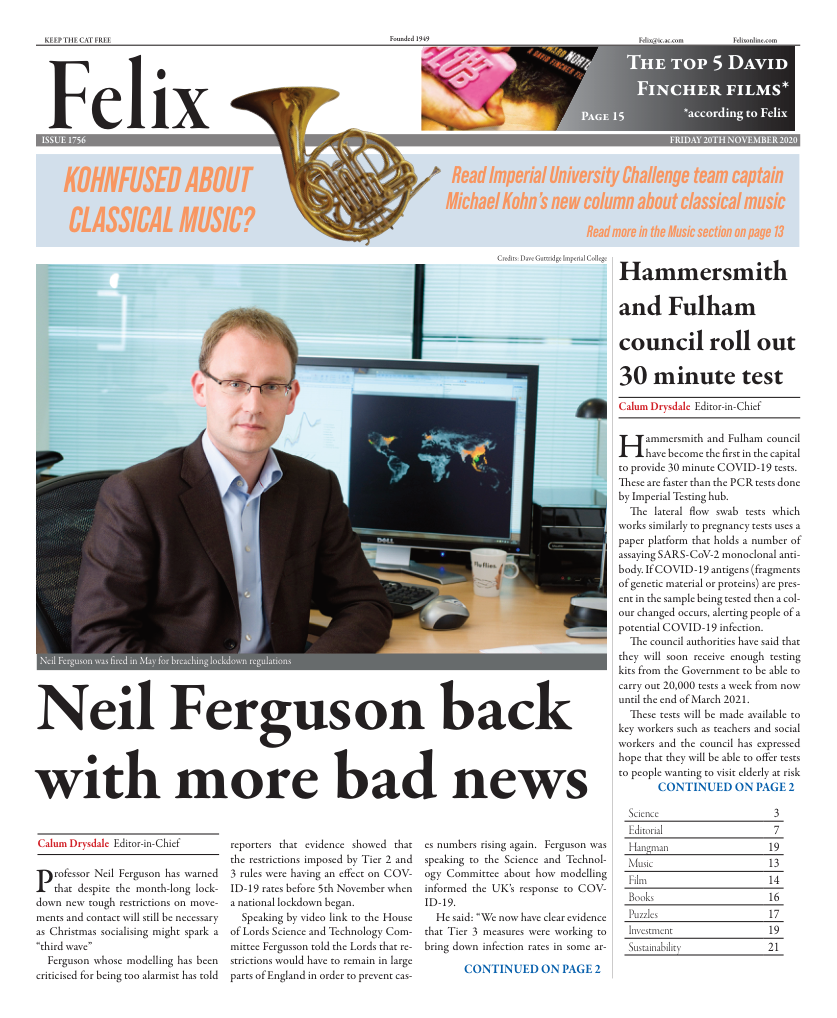Charity CEOs plead for more support as research funding dwindles
Science writer Patrick Chan writes about the drought in medical science research funds caused by the pandemic
Medical research charities in the UK are facing a critical moment: as revenues plummet, many have been forced to make huge cuts to their research budgets. In a recent commentary published in the Lancet, a leading medical journal, CEOs of major health charities warn of the threat to UK medical research and development, likely causing delays to medical advances and deployment of next generation treatments for patients.
Due to the pandemic, funding for research by charities has fallen precipitously. Many fundraising events like the London Marathon have been cancelled, while charity shops remained closed for extended periods of time. This has led to a 38% drop in fundraising income between March and May of 2020 and a projection of a fall in research spending by up to £368 million for 2020/21.
As the financial impact starts to bite, charities have already taken drastic actions in anticipation of further losses. The British Heart Foundation has halved its budget for this year, down from £100 million. Meanwhile, Cancer Research UK has cut £44 million from its budget, as well as postponing all decisions on new research ideas for 6 months - meaning that no new research projects were approved or funded in the first half of 2020.
When the government announced a £750 million package to support charities back in April, medical research was excluded. Instead, money was reserved for front-line services to patients, leading to calls for more funding to keep research and development going.
In 2019, charity fundraising brought in an estimated 1.9 billion pounds
The effect of a lack of funding will be keenly felt by patients and scientists alike, as charities play a crucial role in supporting medical research in the UK. In 2019 alone, their fundraising efforts brought in an estimated £1.9 billion, which represented just over half of the total investment in publicly funded medical research in the UK. They also support over 17,000 scientists and their work to advance our understanding of diseases and search for cures.
Moreover, charity-funded research has led to numerous breakthroughs over the years, such as the development of radiotherapy for cancer treatments and life-saving medications for heart attacks and strokes. These treatments have aided in the prevention of an estimated 830,000 cancer deaths in the UK since the 1980s.
With funding not expected to recover for at least 3 to 5 years, charities have also warned of the long-term risks, such as delays in bringing new treatments for patients. Furthermore, there are signs that researchers are also feeling the pressure. In a recent survey, 40% of scientists funded by charities expressed a desire to leave the field as a result of the recent cuts.
However, it does seem that the government is aware of the impact. In their latest UK Research and Development Roadmap policy paper, published in July 2020, the government noted that the pandemic has “exposed the fragility of the funding system, with large sections of our national research activity dependent on third-party funding sources, including international student fees”. They have also vowed to “stabilise the system” in the next spending review, which is due to be published later this month.
As a result, charity bosses have called for the government to use the review as an opportunity to bridge the gap. They propose setting up a new life sciences charity partnership fund, which will enable improvement in patient outcomes and help protect careers. With spending and financing policies being debated now more frequently than ever, perhaps there is hope that the ever-important medical research can continue.






